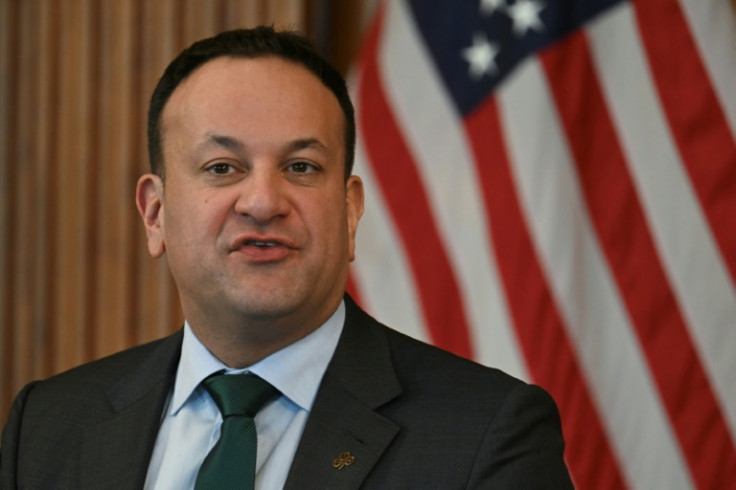Varadkar: Harsh Political Reality Brings Down 'Zeitgeist' Irish Leader

Mixed-race and openly gay, Leo Varadkar captured the spirit of a liberalising Ireland when he became prime minister at just 38 years old, but shifting sentiments and disastrous recent referendums have ended his dream.
Varadkar rose to the leadership of the governing centre-right Fine Gael party in June 2017, when incumbent Enda Kenny resigned in the middle of a parliamentary term.
He remained popular early in his tenure, when he bolstered Ireland's relationship with the European Union during Brexit negotiations and helped to make sure no "hard border" was imposed between his country and Northern Ireland.
However, he also oversaw a historic housing crisis and his party came third in the general election held in early 2020, leading him to announce he would step down once a new government was formed.
It was then that the Covid-19 pandemic hit, and with no new coalition government yet in place, Varadkar led the early response and took the country into lockdown.
A coalition deal allowed for a government to be formed in June 2020, with Fianna Fail leader Micheal Martin taking over as prime minister, but with Varadkar set to return later in the government's term.
He was appointed as Taoiseach (prime minister) for a second time on December 17, 2022.
Varadkar was born in Dublin in 1979 to an Irish mother who worked as a nurse and an Indian immigrant father who was a doctor.
At the age of seven, a precocious Varadkar is reported to have told his mother's friends that he wanted to be the minister for health.
After earning a medical degree from Trinity College Dublin, he went into general practice but stayed involved in politics, and in 2007 secured election for Fine Gael in the Dublin West constituency.
In Fine Gael's 2011-2016 term he served first as minister for transport, tourism and sport, and then as health minister.
In 2015, before Ireland's referendum legalising same-sex marriage, Varadkar came out publicly as gay. His partner, Matthew Barrett, is a cardiologist.
"I am a gay man, it's not a secret, but not something that everyone would necessarily know," Varadkar told broadcaster RTE.
"It's not something that defines me... It's part of my character."
The revelation raised his profile and came at a time when the country was preparing to loosen the Roman Catholic Church's historically strong grip on civil society.
Two years later, Varadkar became party leader and the youngest-ever Taoiseach.
One of Varadkar's first moves as prime minister was to announce a public vote on Ireland's strict abortion laws. In May 2018, the country voted by a landslide 66 percent to repeal the ban.
"He embodied the zeitgeist -- a confident gay man with an Indian dad. He seemed to look the part of a leader of a new and improved Ireland," Breda O'Brien wrote in The Irish Times in 2018.
But while his liberal credentials were strong, Varadkar was hounded by accusations that his Fine Gael government failed on housing, homelessness and health, leading to a poor showing in the 2020 vote.
His return as Taoiseach in 2022 found Ireland in a different place, grappling with post-Covid demands and increasingly fractured over the issue of immigration.
It was in this context that Varadkar decided to hold two referendums on modernising the language of Ireland's constitution with regards to families and women's roles.
Victory seemed a formality, as with the previous referendums on gay marriage and abortion, but votes dealt him heavy defeats.
His party also seems set for losses in coming elections, and in a general election due within a year.
As he announced his resignation, an emotional Varadkar said he felt he was no longer the "best person" to lead the country.
© Copyright AFP 2024. All rights reserved.





















